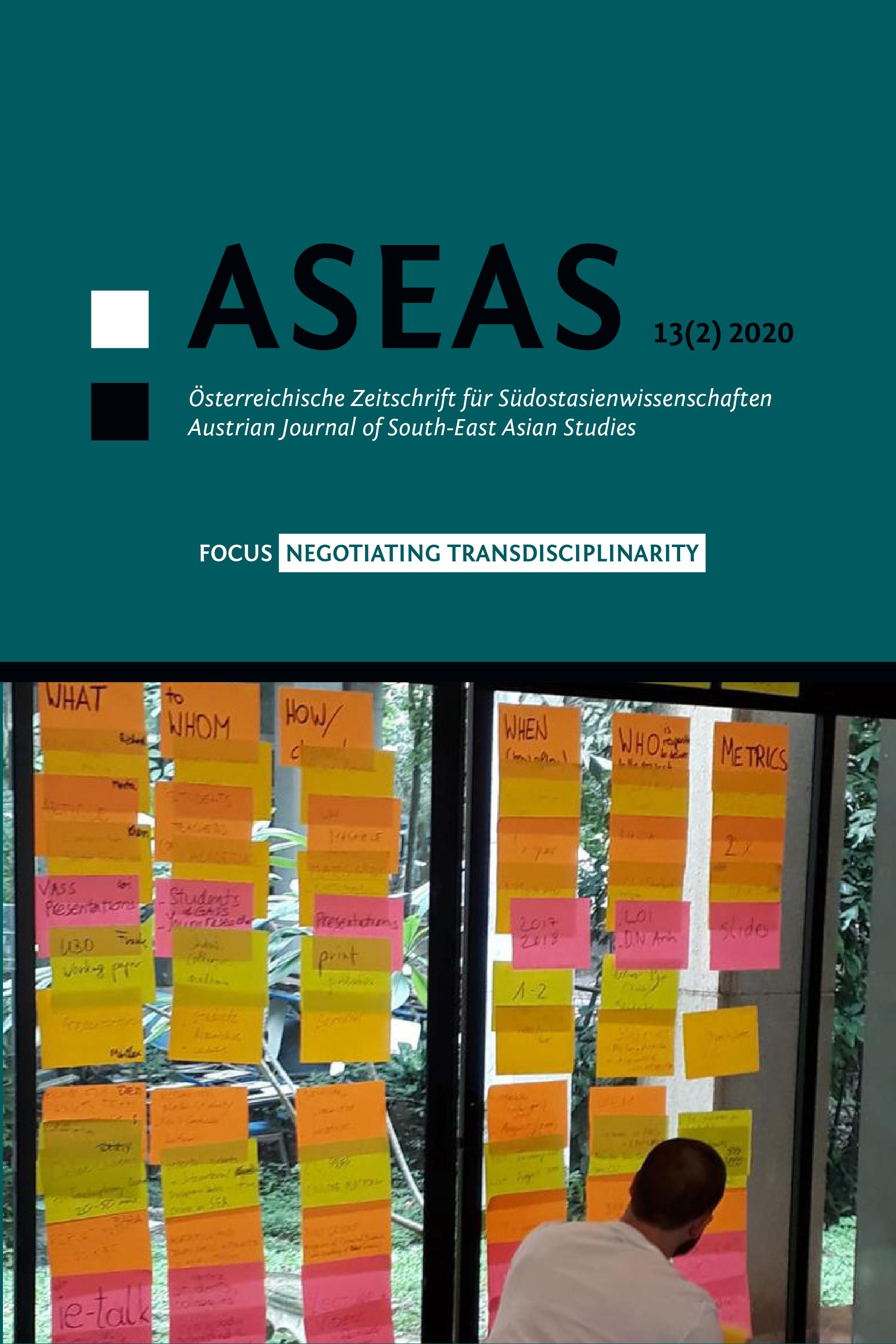Vaccine Hesitancy and the Cultural Politics of Trust in the Dengvaxia Controversy
A Critical Discourse-Ethnographic Study of Online News Content, Producers, and Audiences
DOI:
https://doi.org/10.14764/10.ASEAS-0037Keywords:
Vaccine Hesitancy, Trust, Dengvaxia Controversy, Philippines, Critical Discourse AnalysisAbstract
Vaccine hesitancy refers to the delay in acceptance or refusal of vaccination despite vaccine availability. At its very core lies the problem of trust. Yet, there is very little research on the role of trust in vaccine hesitancy, particularly concerning its ideological dimension. This research aims to describe and explore how the online news discourse on the Dengvaxia vaccine controversy legitimizes a particular trust culture in Philippine society. For this purpose, the research adopts the theory of social trust propounded by the Polish sociologist Piotr Sztompka and links it to the study of news media using critical discourse analysis. This research is an interdisciplinary project that adopts various concepts and lenses from sociology, linguistics, media studies, and public health.
References
Ayres, L. (2008). Semi-structured interview. In L. M. Given (Ed.), The SAGE encyclopedia of qualitative research methods (Vol. 1 & 2, pp. 810-811). London, UK: SAGE Publications.
Bakir, V., & Barlow, D. M. (2007). Exploring relationships between trust studies and media studies. In V. Bakir & D. M. Barlow (Eds.), Communication in the age of suspicion (pp. 9-23). New York, NY: Palgrave MacMillan.
Barber, B. (1983). The logic and limits of trust. New Brunswick, NJ: Rutgers University Press.
Candlin, C. N., & Crichton, J. (2013). From ontology to methodology: Exploring the discursive landscape of trust. In Discourses of trust (pp. 1-18). New York, NY: Springer.
Fusch, P. I., Fusch, G. E., & Ness, L. R. (2017). How to conduct a mini-ethnographic case study: A guide for novice researchers. The Qualitative Report, 22(3), 923.
Giddens, A. (1990). The consequences of modernity. Stanford, CA: Stanford University Press.
Grady, D., & Thomas, K. (2017, December 17). Drug company under fire after revealing dengue vaccine may harm some. New York Times. Retrieved from https://www.nytimes.com/2017/12/17/health/sanofi-dengue-vaccine-philippines.html
Hanitzsch, T., Hanusch, F., Ramaprasad, J., & De Beer, A. S. (2019). Worlds of journalism: Journalistic cultures around the globe. New York, NY: Columbia University Press.
Krippendorff, K. (2018). Content analysis: An introduction to its methodology. New York, NY: SAGE Publications.
Larson, H. J., Hartigan-Go, K., & de Figueiredo, A. (2019). Vaccine confidence plummets in the Philippines following dengue vaccine scare: Why it matters to pandemic preparedness. Human Vaccines & Immunotherapeutics, 15(3), 625-627.
Larson, H. J., Jarrett, C., Eckersberger, E., Smith, D. M., & Paterson, P. (2014). Understanding vaccine hesitancy around vaccines and vaccination from a global perspective: A systematic review of published literature, 2007-2012. Vaccine, 32(19), 2150-2159.
Lewis, J. D., & Weigert, A. (1985). Trust as a social reality. Social Forces, 63(4), 967-985.
Luhmann, N. (1979). Trust and power. London, UK: John Wiley & Sons.
Lunt, P., & Livingstone, S. (1996). Rethinking the focus group in media and communications research. Journal of Communication, 46(2), 79-98.
MacDonald, N. E. (2015). Vaccine hesitancy: Definition, scope and determinants. Vaccine, 33(34), 4161- 4164.
Machin, D., & Mayr, A. (2012). How to do critical discourse analysis: A multimodal approach. London, UK: SAGE.
Misztal, B. A. (1996). Trust in modern societies. Cambridge, UK: Polity Press.
Mollering, G. (2006). Trust: Reason, routine, reflexivity. Bingley, UK: Emerald Group Publishing.
O’Donnell, M. (2011). Week 3: Transitivity and Construal Analysis. Retrieved from https://www.coursehero.com/file/28887122/LFC-2011-week3-Transitivitypdf/
Richardson, J. (2006). Analysing newspapers: An approach from critical discourse analysis. New York, NY: Palgrave MacMillan.
Seligman, A. B. (1997). The problem of trust. New Jersey, NJ: Princeton University Press.
Sztompka, P. (2003). Trust: A cultural resource. The Annals of the International Institute of Sociology, 9, 47-66.
Sztompka, P. (1999). Trust: A sociological theory. Cambridge, UK: Cambridge University Press.
Sztompka, P. (1998). Trust, distrust and two paradoxes of democracy. European Journal of Social Theory, 1(1), 19-32.
Thompson, J. (1990). Ideology and modern culture: Critical social theory in the era of mass communication. Stanford, CA: Stanford University Press.
Valido, E. M., Laksanawati, I. S., & Utarini, A. (2018). Acceptability of the dengue vaccination among parents in urban poor communities of Quezon City, Philippines before and after vaccine suspension. BMC Research Notes, 11(1), 661.
Viswanath, K. (2008). Health communication. In W. Donsbach (Ed.), The international encyclopedia of communication (pp. 1-16). Malden, MA: Blackwell Pub.
Wodak, R., & Savski, K. (2018). Critical discourse–ethnographic approaches to language policy. In J. W. Tollefson & M. Perez-Milans (Eds.), The Oxford handbook of language policy and planning (pp. 93-114). Oxford, UK: Oxford University Press.
Downloads
Published
Issue
Section
License
Copyright (c) 2020 Society for South-East Asian Studies (SEAS)

This work is licensed under a Creative Commons Attribution-NonCommercial-NoDerivatives 4.0 International License.
For all articles published in ASEAS before December 2014 and after July 2022, copyright is retained by the authors. For articles published between January 2015 and June 2022, the Society for South-East Asian Studies (SEAS) is the copyright holder. Articles published in ASEAS before December 2019 are licensed under the following Creative Commons License: Attribution-NonCommercial-NoDerivs 3.0 Unported. Articles published after that date are licensed under the following Creative Commons License: Attribution-NonCommercial-NoDerivs 4.0 International. In both cases, this means that everybody is free to share (to copy, to distribute, and to transmit the work) under the following conditions:
-
Attribution — You must give appropriate credit, provide a link to the license, and indicate if changes were made. You may do so in any reasonable manner, but not in any way that suggests the licensor endorses you or your use.
-
NonCommercial — You may not use the material for commercial purposes.
-
NoDerivatives — If you remix, transform, or build upon the material, you may not distribute the modified material.


